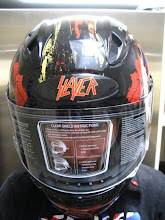Moon Shot
There it was. Finite. If Deke, and the others before him and those who would follow were successful, then man had taken his first faltering steps not merely to other worlds close by, but to far distant stars and worlds revolving about those alien suns. Deke looked down on his world in a mixture of sadness and hope, for he knew this planet earth one day would pass into history. No one knew when, but all knew it was inevitable.
He knew that if one day men were successful in journeying to distant stars and populating the planets of those far away stellar engines, then the race of man was safe. A star might go nova, obliterate an entire solar system, but if man populated many solar systems...he smiled to himself. Then life would go on.
That was the gift to the future of all those among us who made it possible. Shepard, Armstrong, Conrad, Grissom, Gagarin, Leonov, Stafford, Scott, Irwin, Young, Cernan, Glenn, Cooper, Schirra, Carpenter -- and so many more.
And on that roll call there was now this name to remember.
Always.
Deke Slayton.
Astronaut.
(Excerpted from Moon Shot by Alan Shepard and Deke Slayton)
Today would have been Deke's 83rd birthday.
He was chosen as one of the original Mercury 7 Astronauts but was grounded because of an erratic heartbeat. Since he couldn't have a Mercury flight, Deke became the Director of Flight Crew Operations -- one of his main jobs was to choose the crews for the Gemini and Apollo programs. He did, however, finally make it into space as the docking module pilot for Apollo Soyuz in 1975.
A few weeks ago, I stood in front of the Astronaut Offices at the Johnson Space Center (home of NASA) in Houston. I thought, this is the place where it happened. And that's the building where Deke Slayton sat at a desk and decided who would go to the moon. I realized that for the first time in my life, I was walking in and among the buildings where some of my heroes once trained and sacrificed to explore the unknown...and I felt myself getting a little teary. I sat in historic Mission Control at the console once occupied by Flight Director “failure is not an option” Gene Kranz. I looked around the room, closed my eyes, and wondered what it would’ve been like to be in here during the heyday of Apollo.
I stood at the podium used by JFK when he delivered the famous "We will go to the moon..." speech. I peeked inside Gordon Cooper's Faith 7 – it’s unbelievable how small that thing really is. But he must’ve been awfully comfortable in there given the fact that he fell asleep during countdown and again while completing his 22 orbits around Earth. I also saw Cooper’s Gemini V capsule – he shared that one with Pete Conrad. The capsule is about the size of a VW Beetle and Conrad said it was like “spending eight days in a garbage can”.
I walked into the auditorium expecting it to be empty. But in the lobby was the crew of STS 117 – their mission is to deliver solar panels to the International Space Station. Launch is scheduled for March 15th.
And I met Gene Cernan -- the Commander of Apollo 17 and the last man to walk on the moon. As he climbed up the ladder of the LM to make the trip back to Earth he said: "As we leave the Moon at Taurus-Littrow, we leave as we came, and God willing, as we shall return, with peace and hope for all mankind. As I take these last steps from the surface for some time to come, I'd just like to record that America's challenge of today has forged man's destiny of tomorrow. Godspeed the crew of Apollo Seventeen."
And as I drove off the Johnson Space Center and turned right onto NASA drive, I hoped that someday soon new visitors from Earth would set foot on the surface of the moon and remember the names of those who paved our way...


